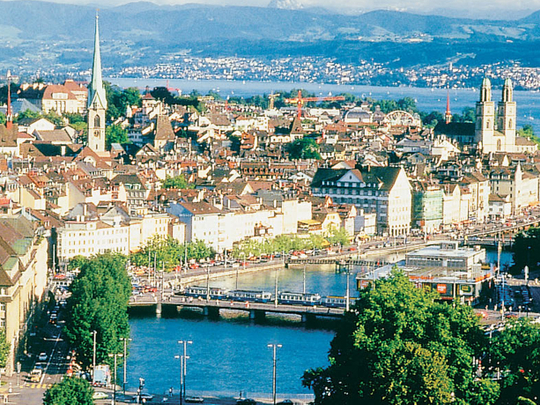
Londoners tend to be pretty happy with their city. But I know few who haven’t, on occasion, flirted with the idea of a life in an Italian city, a notion that conjures up sun-drenched piazzas, shaded arcades, gelato on tap and leaning towers. Judging from a newly released survey, many Italian city- dwellers would think them mad.
Every three years, the European Commission seeks to measure how city-dwellers in Europe perceive their quality of life. For its latest Eurobarometer survey, 40,000 people in 79 cities were asked about their perceptions about transportation, health services, safety, pollution and foreigners.
Europe’s cities consistently rank among the best in the world for quality of living, so it’s no surprise that for the most part, urban Europeans declare themselves broadly satisfied with where they live. There are some predictable exceptions. Athenians rank among the most dissatisfied, and there are sizeable pockets of unhappiness in Eastern Europe and Turkey. But Italy?
The Italian singer-songwriter Roberto Vecchioni caused a storm in December when, during a lecture at Palermo University, he referred to Sicily as an island of excrement (he used an earthier word), citing the poor state of public services and the general disorder. Palermo and Rome are separated by over 900 kilometres and are worlds apart in many ways, but respondents in both were more likely than their counterparts in northern Europe to be unhappy with the state of public services, the condition of their streets and buildings, public transportation and the level of opportunity.
Three-quarters of those in most of the cities surveyed said they felt safe. But barely half of those in Rome agreed, about the same as in Marseille, Istanbul and greater Athens. Asked about levels of trust, Londoners mainly seem to trust people in their city (69 per cent); Romans, at(47 percent), not so much.
In three Italian cities, more than 60 per cent of respondents did not feel that administrative services helped people efficiently. Administrative efficiency was, by contrast, praised in Zurich (78 per cent) and Belfast (71 per cent). Similar results appeared when the surveyors asked if, generally speaking, the public administration could be trusted.
The survey measures perceptions and it could just be that Italians (or southerners in general) are harder to please. But I doubt it. The results jibe with slow growth, zero productivity growth and high levels of unemployment, especially among the young. In this, the survey holds a message for Italian Prime Minister Matteo Renzi who, as a former mayor of Florence whose reformist rhetoric catapulted him onto the national stage, understands the importance of city government. If sentiment in Italy’s metropolises grows dour, that may be an ill omen.
The survey potentially tells us something else about the importance of cities. At least 80 per cent of respondents in all but six of the locations surveyed said they were happy to live in their city, with the highest scores (above 98 per cent) recorded in Europe’s north. What is striking is that there appears to be a correlation between those who report high levels of satisfaction and those who view foreigners in their city as an advantage. Conversely, respondents who complained loudest about transportation, public services, safety and other issues tended to be view the presence of foreigners far less favourably.
All but one of the eight cities with the lowest levels of satisfaction appeared at the bottom of this list. Here, again, Italy stood out. When asked whether the presence of foreigners was a good thing, all six of the Italian cities surveyed — Turin, Rome, Bologna, Palermo and Naples — ranked among the most negative 15 of all surveyed.
This cannot simply be dismissed as a reflection of the number of foreigners present in a city. Almost one in three residents of Zurich is foreign-born; more than a quarter of Stockholmers are immigrants with about 15 per cent foreign-born.
But 89 per cent of respondents in Zurich, and 85 per cent in Stockholm, said foreigners are good for their city.
Increasingly, the world is urban. In 1950, 30 per cent of the world’s population lived in urban areas. By 2050, the United Nations estimates that will be 66 per cent. In Europe, 75 per cent live in urban areas. It stands to reason that the better cities meet our needs — whether in public transport, housing or health care — the greater the perception that newcomers can be accommodated and add value. That places urban administrations at the very heart of the global puzzle over immigration and integration. Some are clearly doing better than others.
— Washington Post
Therese Raphael is a Bloomberg View editor in London, writing about European politics and economics. She was previously editorial page editor of the Wall Street Journal Europe.










